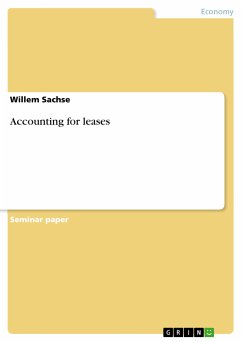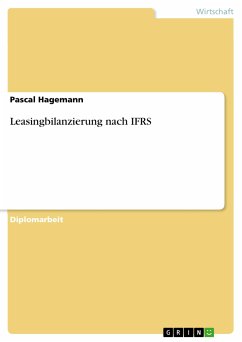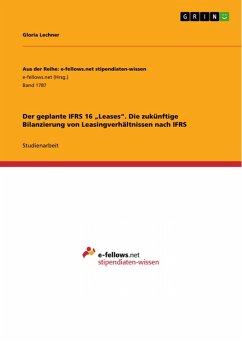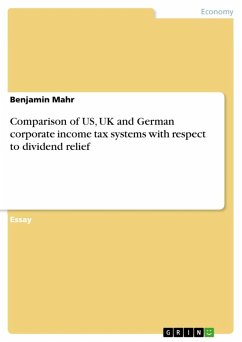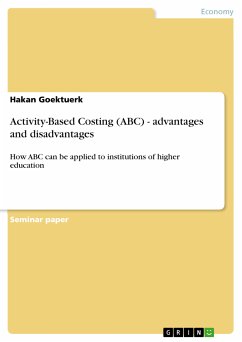Seminar paper from the year 2004 in the subject Business economics - Accounting and Taxes, grade: 1,0, University of Bayreuth, course: A critical analysis of international financial reporting issues, language: English, abstract: The globalisation of capital markets is driving the increasing convergence of accounting standards worldwide. Recently, the progress toward attaining a global financial reporting framework has accelerated, and many significant steps have been taken. The most important step is the formation of the International Accounting Standards Board (IASB), which replaced the International Accounting Standards Committee (IASC), as part of a comprehensive restructuring of the international accounting standard-setting organisation in March 2001. Since then the acceptance and adoption of International Accounting Standards/International Financial Reporting Standards (IAS/IFRS), hereafter referred to as IFRS, has been growing rapidly. From 01 January 2005 all publicly traded European companies shall account for their consolidated accounts according to IFRS. In accordance with § 292a German Commercial Code (Handelsgesetzbuch,HGB)German parent companies may account for their consolidated accounts only according to international accepted accounting standards, according to prevailing opinion such are IFRS and the United States Generally Accepted Accounting Principles (USGAAP).Due to the Accounting Law Ref-ormation Act (Bilanzrechtsreformgesetz,BilReG)all publicly traded German companies shall account for their group accounts according to IFRS from 01 January 2005 except those that are already applying US GAAP (from 01 January 2007). Furthermore all enterprises may account for their individual accounts according to IFRS in addition to German Commercial Code which still is obligatory for tax, and profit determination and distribution purposes. Due to the commitment of applying IFRS for consolidated accounts international financial reporting issues need to undergo a closer examination. This paper deals with the accounting for leases. First current lease accounting standards are described with a focus on IAS 17 and its key differences to US GAAP and German Commercial Code. Next proposed improvements on current lease accounting standards are dealt with, focussing on new approaches discussed in the accounting and lease literature and a possible treatment of leases with optional features. After this the proposed approaches' effect on profit determination and distribution is discussed. The final part offers a conclusion to some of the issues raised in this paper.
Dieser Download kann aus rechtlichen Gründen nur mit Rechnungsadresse in A, B, BG, CY, CZ, D, DK, EW, E, FIN, F, GR, HR, H, IRL, I, LT, L, LR, M, NL, PL, P, R, S, SLO, SK ausgeliefert werden.

